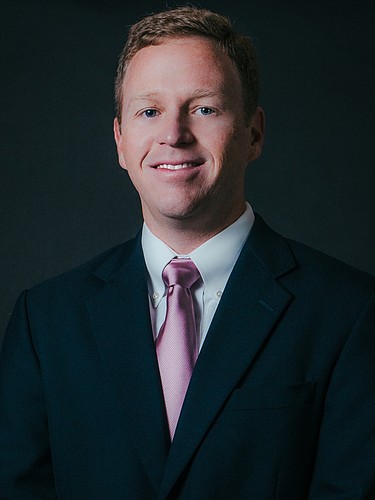
Robert Wohn was elected without opposition Wednesday to a 4th Judicial Circuit seat on The Florida Bar Young Lawyers Division board of governors. A second-generation attorney, he’s part of Deutsche Bank’s in-house counsel team and has a background in financial crimes compliance that he built while working as an analyst at Ernst & Young.
What inspired you to become a lawyer?
My dad was an attorney for years before being appointed to the bench for the 18th Circuit in Brevard County. Growing up, I remember hearing my parents talking about this “depo” or that “mediation,” so the law has been a part of my life since well before I knew what those words meant. I always enjoyed school, and did well, and I was fortunate to be able to follow in his footsteps.
How do you relate your undergraduate degree to your practice of law?
I studied marketing in college. Even though there is so much more to marketing, sales is probably the first thing that comes to people’s minds when they hear “marketing,” and I was sure I did not want to go out and be a salesman. It didn’t take long to realize that being an attorney requires so many of the same skills. Attorneys have to convince clients of their abilities and persuade judges and opposing counsel about their legal arguments. At Deutsche Bank, I spend most of my day negotiating contract terms with clients and other attorneys, so I definitely have to be able to sell my interpretations and the importance of provisions I need to have included.
How did you decide your practice area?
Beyond the sales aspect, business school in general gave me a greater perspective of how the business world works and an appreciation for how integral attorneys can be in helping companies build and protect their brands and their businesses. Before joining DB, I worked as a commercial litigator for more than six years. As a litigator, your clients don’t usually come to you until the trouble has already started. Suing people is fun and all, but I enjoy the idea of being proactive and working on the front end to structure contracts and deals with an eye on avoiding litigation.
What do you think will be the next biggest change in your area of law?
There have probably been eight new banking regulations to come out just since I started answering these questions. Technology and artificial intelligence is certainly changing the game when it comes to contract review and drafting. A computer can read a contract almost instantly, and is not likely to overlook key words or phrases that may need to be deleted or changed. I don’t think the machines will be replacing us tomorrow, but they are going to offer some serious competition we, as attorneys, will have to face as time goes on.
What community service have you pursued and why that?
Florida Free Legal Answers is an online portal (florida.freelegalanswers.org) where clients can request brief advice and counsel about a specific civil legal issue from a volunteer lawyer. Lawyers provide information and basic legal advice without any expectation of long-term representation. The clients select a category that describes their question, making it easy to answer questions that match a particular practice area or topic. I got started with the program answering landlord/tenant questions following Hurricane Irma. The clients are often just looking for a little information and don’t know where else to turn. Even if it is not necessarily good news, they are generally very appreciative of the guidance.